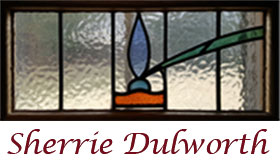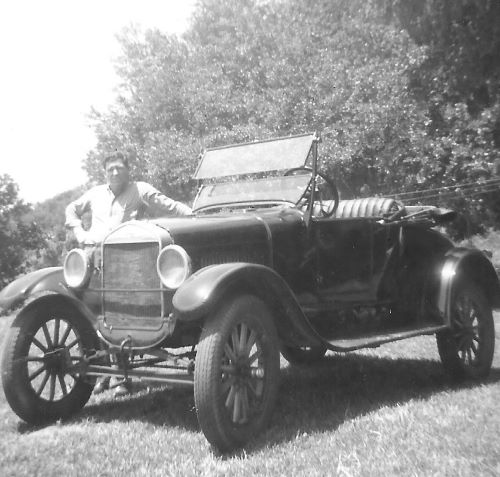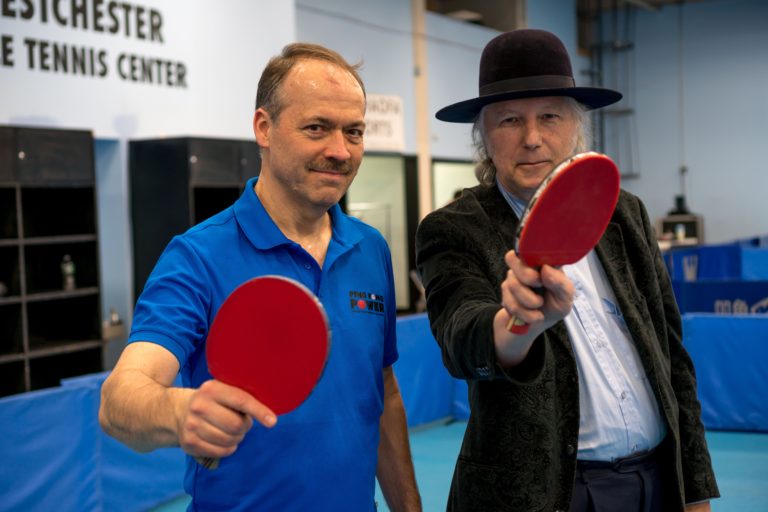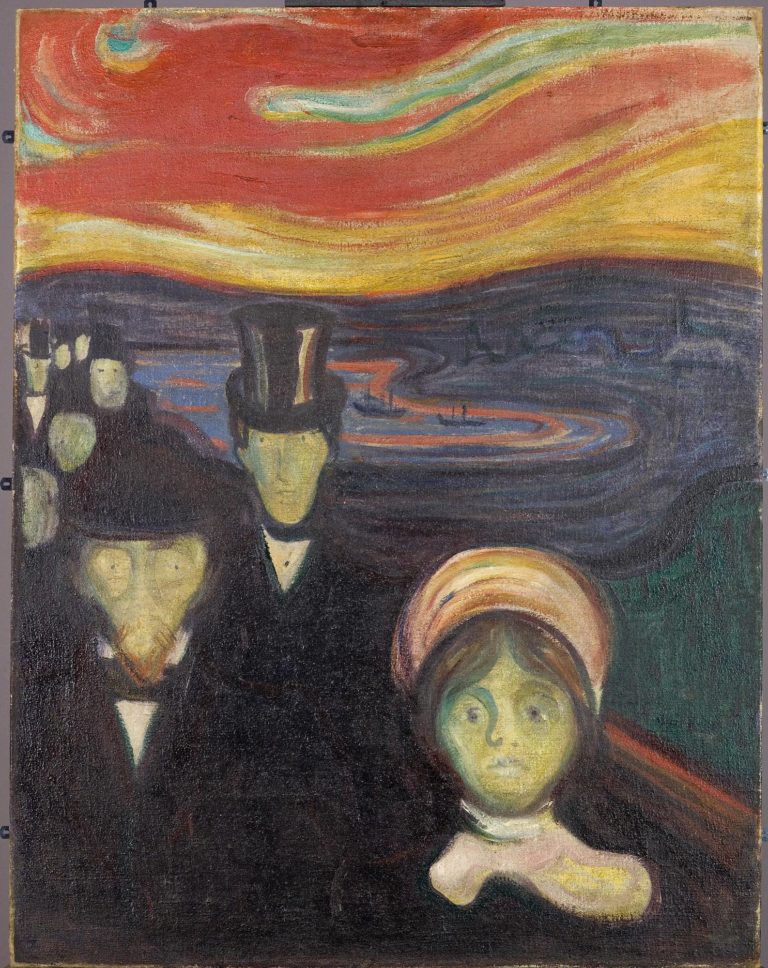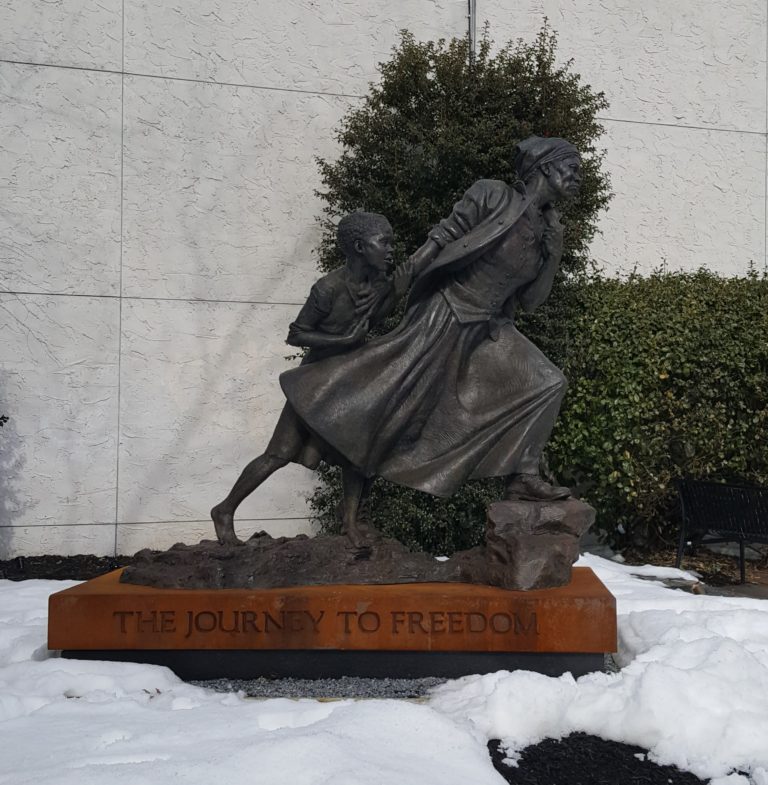The Bargain
This Biostories tribute to my father was published in the August 2023 edition.
Whenever my dad left our house for any reason other than for work, we never knew
what he would bring home: a wood lathe, antique clocks, a live goat, colorful fishing
tackle, a gigantic victrola horn—those are among the cornucopia that I recall from my childhood. On occasion, he would return with something truly spectacular like a running Model T Ford.
Bargaining was one of his favorite past-times. He seemed to enjoy the banter, and the give and take of the barter, as much as he did his eclectic acquisitions. Yet our family didn’t hear about my father’s final, and perhaps finest, bargain until just days before he died.
“I don’t have much time. What’s the cheapest thing you’ve got?” I envision him half asking, half demanding while speaking with the man he had just met, a part time funeral director, part-time minister.
Their encounter took place in early June of the new millennium. As the story goes, the two men exchanged a quick handshake and names, once my dad explained that he literally didn’t have much time.
Despite his seventy-nine years, Dad stood like a 5’8” version of John Wayne: broad-shouldered and muscular—a rugged, weathered oak. But just a few days earlier,
doctors had delivered grim news of an aggressive, late-stage brain tumor. It seemed
that with or without treatment, he was operating on borrowed sunrises. He had rarely been sick and hated being cooped up, so he opted to go home and focus on things he wanted to do—tend his garden and spend time with family and friends.
Summing up his prognosis, Dad continued, “I’m price-shopping funerals. My family will get in here and they’ll get all emotional. I’m trying to save them from that,” he explained.
“Besides that, they’ll pay too much.”
BINGO! There it was.
Whenever any of our immediate family negotiated a purchase, whether a yard sale trifle or big-ticket item, Dad would inquire about the asking price and then how much we had actually paid. While he wasn’t a miser, his mantra was ‘never pay retail.’
Invariably, our answers were met with incredulity. Dad’s slow sideways headshake left no doubt what he thought―we were amateurs, not to mention spendthrifts. “You paid too much,” was his almost automatic reply. He stated this not as his opinion, but one that he deemed as fact. Even if we had managed to strike a bargain-basement deal, the unspoken undertone and his verdict was that he could have gotten a better price.
I suspect that being an adept haggler was a useful talent growing up in rural Kentucky during the era of the Great Depression. It was certainly a skill he honed his entire life.
He even had a cheap business card made up with his name, our phone number, and
his straight-forward message:
BUY. SELL. TRADE.
ALMOST ANYTHING
For him, trading stoked enthusiasm that the long hours spent repairing the inner
workings of power plants did not. It was more akin to his pride as he pitted wits against other checkers’ champions or as he deftly solved mind-puzzlers, like the Rubik’s Cube.
Dad awaited the answer to “What’s the cheapest thing you’ve got?” The undertaker, no doubt schooled in the art of politeness replied, “Well sir, we have a cloth covered particle board that we can sell you for $300.”
Dad let the air hang heavy between them, then deadpanned, “Not that cheap!”
The ice was broken; Dad was just warming up. He wasn’t going to let the untimeliness of his own looming death rob him of a chance to bargain.
He wandered around the open displays and stopped in front of an ornate steel-vaulted box, one with an expertly carved hardwood exterior and a plush bedding.
“How much is this one?” he inquired. It was a Rolls-Royce of caskets, carrying a heftier price tag than Dad had ever paid for a car. He whistled.
Although he wasn’t the most patient of men, on the better side of that equation, Dad wasn’t pompous or pious. He played the jester with a confident charm that let you know it was an act.
“Tell you what―let’s make a deal,” he proposed. “How about if you put me in this fancy one for the showing. Then right before you bury me, you can do a little ‘switcharoo’ and put me in that cheap one for burying.”
It is likely that this pitch was part jest and part hope—just how much it was of each, we will never know—but he smiled a big smile. The two men philosophized a bit more, buddies now. Dad opined about the lack of merit in buying an expensive casket. He said he wasn’t worried about his body or his soul. It was ashes-to-ashes for the body, and he was comfortable with where his soul was going.
They didn’t settle on a deal but on his way out, Dad asked if he could have one of the promotional baseball-style caps by the front door. He had dozens of caps and often wore one for shade. He took a white one, the name and a likeness of the building printed in red above the bill.
The two men shook hands again and Dad thanked him for his time and the cap. He
came home for dinner in an upbeat mood, a new mesh ballcap atop his wavy gray hair.
~
In rural communities, like the one where my parents lived, funeral homes are as much a part of the community fabric as churches and often better attended. Dad lacked strong allegiances to either. Over the years, he had paid plenty of respects to folks in plush carpeted funeral parlors, but he didn’t lean toward a favorite.
He told Mom that he had stopped while coming through town to check out some funeral options and no, he had not made any decisions. In fact, he had decided that we— meaning she, my sister, and I—could decide and make the arrangements. That was a surprise.
Yet each day, he wore the cap.
Over the next couple of weeks, our family feigned normality during a time when nothing was normal. Dad’s mood swings were no doubt intensified by the pressure exerted by the tumor. He ran a gamut from being stoic, to loving, philosophical, funny, angry, and sad. We all did.
It wasn’t long before Dad took a turn for the worse. Bedridden, he drifted in and out of consciousness, being gradually less responsive as the days passed. We had already arranged for Hospice support; and close family members took turns visiting, helping with bedside care, and keeping vigil.
But there was still the outstanding matter of funeral plans. My sister and our cousin
drove the twenty miles into town to check out the few available choices. When they
stopped in the place signified by the ballcap, the two women met the funeral director, a friendly fellow with a shock of silver hair. He was surprised to hear that dad was so quickly close to death. He shared the story of their encounter from just a week or so earlier, offering the kind of detail that allowed them to feel as though they had been present.
They returned, eager to recount what they had learned in a, “You aren’t going to believe what he said,” kind of way. Except that we all could believe it. It was so quintessentially him that we could almost hear his bass voice resounding. Death may have had the final word, but Dad had triumphed with the last laugh.
For a moment, the grief that we had all been carrying splintered and gave way. We
doubled over with uncontrolled laughter, in unity with him and with each other. We
laughed until we were giddy; we laughed until we were breathless; we laughed until we cried.
As part of his final trade, Dad got a new ballcap. And in the end, he lay in repose in a lovely-enough, modest-priced casket that we chose, even if we did get all emotional and might have paid too much.
The funeral director got a colorful yarn of an old horse trader who became a new
customer, not to mention some free advertising. We asked him to share the story as
one of Dad’s eulogies, to which he happily obliged.
And our family got something far more priceless.
Whether it was intentional or not, Dad’s parting gift to us was this story, one in which he contemplated and confronted death, certainly with sadness—but with a greater measure of wit and wisdom, grace, courage, and love.
All in all, it was a good bargain.

